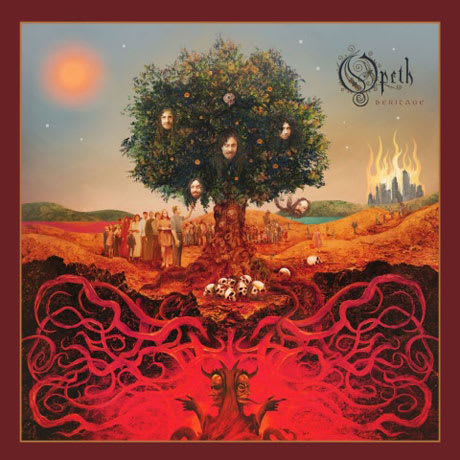First, a piano prelude ― a soft, evocative introductory moment, more Chopin than Opeth (at least the Opeth we've heard before) ― then bass support for each reflective, even introspective, broken chord as the piano repeats its opening theme and fades away. The atypical title track seems a gesture to the past, to influences, a sign marking a slightly different path, a preparatory intake of breath. A few seconds pause and with "The Devil's Orchard," the record gears up, its main engine revving in a series of fast-moving, heavy prog phrases. Each powerful burst adds another layer to the ensemble, though the motion isn't consistently upwards. Song by song, Opeth play with the ebbs and flows of musical dynamics, building intensity then easing off to peel the layers away, only to work back towards one climactic crest after another: a short guitar solo, a full band onslaught and so on. Heritage retains the most eclectic elements imbedded throughout Opeth's work, but filters out the death metal aggression and raw inexperience of the younger band that were. What we hear now is still heavy, at times, anyway, but never quite breaks into full-on power mode (nor death metal vocals). It's more like the heaviness of complexity ― melodic progressive metal threaded with jazz, rock, neo-classical, folk and even world beat rhythms. The accumulated effect is quintessentially Opeth, forged step by step through every recording that came before so that Heritage plays like a career-defining statement two decades in the making. It's not the kind of album you like, but something you absorb, consume, process and integrate. And you're not quite the same after you have.
(Roadrunner)Opeth
Heritage

BY Laura WiebePublished Sep 20, 2011